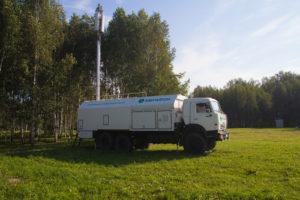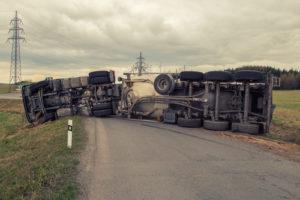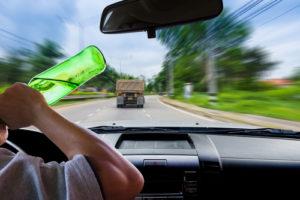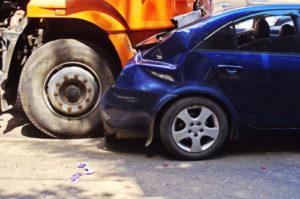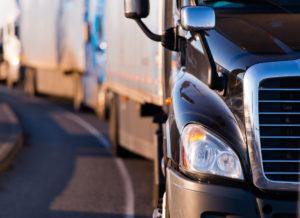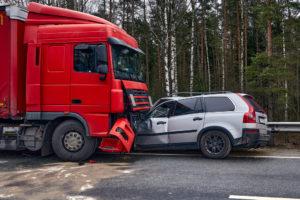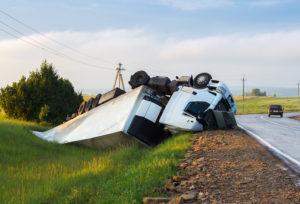

Truck accidents are often caused by driver error (truck driver or passenger vehicle driver) and/or trucking company violations. In some cases the cause could be related to equipment or cargo problems. Some of the common types of accidents involving large commercial trucks are discussed below.
Rear-End Truck Accidents
A rear-end collision can be catastrophic when a semi hits the back of a passenger car. Even traveling at a lower rate of speed can cause significant damage and injuries, just because of the truck’s sheer weight and size.
A truck that rear ends another vehicle could also ride over the vehicle, which can be especially dangerous. And there is also the risk that a truck will push the vehicle into the back of another, causing a chain reaction collision.
Causes for rear-end truck accidents include:
- driver impairment;
- inattention; and
- tailgating.
Following a vehicle too closely can make stopping difficult, especially if the roads are slippery. But a rear-end crash can also be the result of faulty or defective brakes. Sometimes this stems from a failure to inspect and/or repair them.
For a free legal consultation, call (614) 538-1116
Jackknife Truck Accidents
Another type of accident is when it jackknifes. This is characterized by the trailer swinging outward and then back toward the cab. The trailer can strike other vehicles, objects or people.
Having to suddenly slow down or stop is a common cause for these crashes, especially if travelling at a high rate of speed. Taking a curve too fast can also lead to a jackknifing accident. Once the tires lose traction, the driver can lose control.
Rollover Accidents
Rollover crashes is another type of truck accident in Dublin. One cause could be a failure to properly adjust speed when on a ramp or a curve. But they can also be caused by driver error, such as being distracted, fatigued or actually falling asleep at the wheel. As a result, the driver may have to make a sudden move and could lose control and roll over.
Oversteering or overcorrecting can also cause a rollover. This can happen when a truck starts to drift off the road, when making a lane change or another vehicle cuts it off.
Risk of a truck rollover can be heightened by improper loading. The cargo might shift because it’s not secured or the weight may not be distributed evenly. The poorly balanced or shifting cargo in the trailer may contribute to the rollover when the driver makes a sudden move or overcorrects.
Underride Accidents
Underride crashes occur when a vehicle slides partially or completely underneath a truck. Most often this happens at the back of the truck. While rear-end crashes are oftentimes the fault of the vehicle that strikes the back of a truck, the severity of injuries could be increased if the truck does not have a proper guard.
These types of accidents can also happen on the side of a truck. Motorcyclists and passenger cars could end up sliding underneath, which may be the fault of a truck driver depending on the circumstances; for instance, failing to yield or making a lane change without signaling.
Determining Fault in a Truck Accident
No matter the type of crash, it’s important to determine who was responsible for it. In some cases it could be that the truck driver was at fault. This may be proven through eyewitness testimony or photographs of the accident scene and damaged vehicles.
Sometimes the trucking company is also liable for injuries. Not only because of its responsibility for its employees, but there may be evidence that shows a trucker was required to drive longer than allowed and was fatigued as a result. The trucker’s logbook may indicate this. Or it could be that the employer knew of a problem with the truck and yet allowed it to be operated on the road.
Victims of truck accidents and their families should contact Bressman Law. We will evaluate the circumstances of the crash to determine liability and the types of damages that may be available. Get started today: (614) 538-1116.
Also order a copy of our free book, Auto Collisions: Knowledge is Power Guide.
Call or text (614) 538-1116 or complete a Free Case Evaluation form

